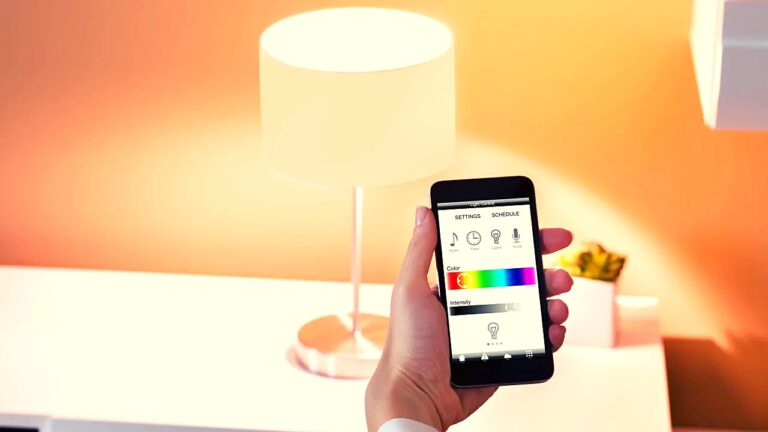Samsung and Apple are currently the two brands that have some great product lineups in the premium category. Although the latest iteration of their flagship products include the Galaxy S24 Ultra and iPhone 16 Pro Max, there is some curiosity among users about last year’s flagships. Yes, we are talking about the Samsung Galaxy S23 Ultra and Apple iPhone 15 Pro Max. The last year’s flagship from Samsung comes loaded with flagship-grade features and specifications, including the powerful Samsung chipset, pro-grade cameras, long-lasting battery life, impressive display, and some useful AI features.
On the other hand, the iPhone 15 Pro Max is also among the few handsets from Apple that will soon support Apple Intelligence features. So, does it make sense to buy the iPhone 15 Pro Max or go with the Galaxy S23 Ultra? In this article, we have pitted both devices against each other in this specs-based comparison. So, without further ado, let’s get started.
Table of Contents
Apple iPhone 15 Pro Max vs Samsung Galaxy S23 Ultra: Price in India
The Apple iPhone 15 Pro Max price in India starts at Rs 1,34,900 for the base variant with 256GB of storage. The mid-variant with 512GB comes with a price tag of Rs 1,45,900, while the top-end option with 1TB storage is priced at Rs 1,54,900.
The Samsung Galaxy S23 Ultra 5G price in India currently starts at Rs 79,999 for the base variant with 12GB RAM and 256GB of internal storage. The top-end 12GB RAM + 512GB model is currently available for as low as Rs 1,14,999.
Apple iPhone 15 Pro Max vs Samsung Galaxy S23 Ultra: Design
The Apple iPhone 15 Pro Max offers a Titanium build. The handset was the first smartphone from Apple to support the Action Button that replaces the single-function switch. The iPhone 15 Pro Max also features an IP68 rating for dust and water resistance. The iPhone is available in Black Titanium, White Titanium, Blue Titanium and Natural Titanium. The iPhone 15 Pro Max measures 159.9 x 76.7 x 8.25mm and weighs 221 grams.
The Samsung Galaxy S23 Ultra features a premium design and was the first handset in the S-series to come equipped with a built-in S-Pen. The smartphone offers an armour aluminium frame and comes equipped with Corning Gorilla Glass Victus 2 protection coupled with an IP68 rating. The handset is available in Phantom Black, Green, and Cream colour options. The Galaxy S23 Ultra 5G measures 1163.4 x 78.1 x 8.9mm and weighs 234 grams.
Apple iPhone 15 Pro Max vs Samsung Galaxy S23 Ultra: Display
The iPhone 15 Pro Max is loaded with a 6.7-inch OLED Super Retina XDR display. The handset offers a resolution of 1290×2796 pixels and ProMotion technology with up to 120Hz screen refresh rate. The handset also features up to 1,000nits of peak brightness, HDR, True Tone, Dynamic Island, and Ceramic Shield protection.
The Samsung Galaxy S23 Ultra 5G packs a 6.8-inch Quad HD+ Infinity-O-Edge Dynamic AMOLED display. The screen has a resolution of 3088 x 1440 pixels and a 120Hz adaptive refresh rate. It also features up to 1,750nits of peak brightness, 240Hz touch sampling rate, and Corning Gorilla Glass Victus 2 protection.
Apple iPhone 15 Pro Max vs Samsung Galaxy S23 Ultra: Performance and OS
The Apple iPhone 15 Pro Max is powered by the Apple A17 Pro chipset. The SoC packs a 6-core GPU and 16-core Neural Engine. The Apple iPhone 15 Pro Max packs up to 512GB of internal storage. The device runs on the latest iOS 18 operating system. Moreover, Apple has already confirmed that the iPhone 15 Pro series will get Apple Intelligence.
The Samsung Galaxy S23 Ultra 5G is powered by the Qualcomm Snapdragon 8 Gen 2 processor that is specially made for the Galaxy handset. The chipset offers an Adreno 740 GPU. It also packs 12GB of LPDDR5X RAM and up to 512GB of UFS 4.0 storage.
Apple iPhone 15 Pro Max vs Samsung Galaxy S23 Ultra: Cameras
The Apple iPhone 15 Pro Max is equipped with a triple-camera setup on the rear panel. The handset packs a 48-megapixel wide-angle primary camera with sensor-shift OIS support, a 12-megapixel ultra-wide-angle lens with f/2.2 aperture, and a 12-megapixel ‘tetraprism’ periscope sensor with 5x optical zoom and 25x digital zoom. On the front, the handset is equipped with a 12-megapixel TrueDepth sensor with f/1.9 aperture.
The Samsung Galaxy S23 Ultra 5G packs a quad-camera setup. The device features a 200-megapixel ISOCELL HP2 primary sensor with OIS support, a 12-megapixel ultra-wide-angle lens with 120-degree FoV, a 10-megapixel telephoto sensor with 3x optical zoom, and a 10-megapixel periscope lens with 10x zoom, and 100x space zoom. On the front, the handset comes equipped with a 12-megapixel Dual Pixel selfie camera with f/2.2 aperture.
Apple iPhone 15 Pro Max vs Samsung Galaxy S23 Ultra: Battery
In terms of battery, the Samsung Galaxy S23 Ultra is equipped with a 5,000mAh battery. The handset features 45W fast wired charging support, 10W Qi wireless charging, and wireless powershare.
The Apple iPhone 15 Pro Max features a 4,441mAh lithium-ion battery that can deliver up to 29 hours of video playback. The handset features up to 25W fast charging support.
Apple iPhone 15 Pro Max vs Samsung Galaxy S23 Ultra: Conclusion
To conclude, both models offer some interesting features and specifications, which still make sense in 2024. The Samsung Galaxy S23 Ultra (Review) offers a premium design and brings some interesting camera features, coupled with flagship performance. The Apple iPhone 15 Pro Max (Review) offers a premium design, flagship performance, pro-grade cameras, and a good display. Moreover, it is again a great option for those who don’t want to buy the new iPhone but still want to experience the Apple Intelligence features.
